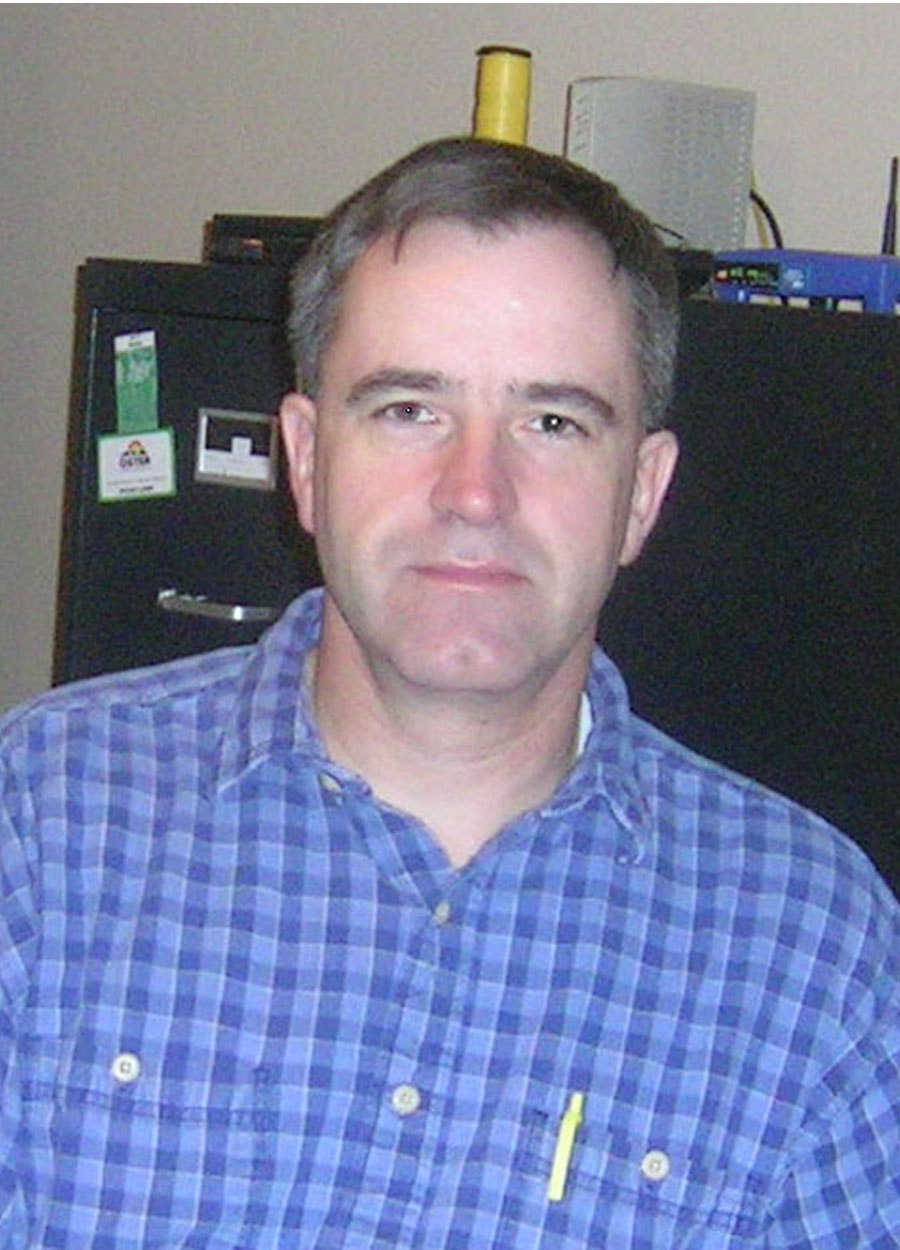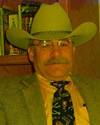Geri Parsons is a certified veterinary technician and co-owner of Optimal Livestock Services, LLC, with specialties in sheep health, reproduction and management. She grew up on a diversified livestock and grain farm in western Nebraska. Her previous professional positions include 19 years with the Colorado State University College of Veterinary Medicine and Biomedical Sciences. This position combined work for Cooperative Extension, Integrated Livestock Management, Food Animal Medicine & Surgery Technical Support Supervisor / Head Technician, Equine Medicine and Small Animal Critical Care. She also has 6 years of veterinary technician experience working in private practices with varying specialties in Nebraska, Idaho, Wyoming, California and Colorado. Geri is author or co-author of numerous book chapters and publications including “Raising Healthy Sheep”, a popular sheep industry handbook published in multiple languages and sold throughout the world.

Jay Parsons grew up on a diversified crop and livestock farm in the southwestern panhandle of Nebraska. He attended Hastings College and Colorado State University earning a bachelor's degree in mathematics and mathematics education, a master's degree in mathematics, and a Ph.D. in agricultural economics. His areas of specialization include production economics, risk management, and decision analysis. His current work is focused on helping farmers and ranchers understand risk and emerging management tools.
Jay is President and co-owner of Optimal Ag Consulting, Inc. in Fort Collins, Colorado. Along with his wife, Geri, he co-founded Optimal Livestock Services LLC in 2009 as a wholly owned subsidiary of Optimal Ag focused on meeting the growing services needs of the sheep and livestock industry and assisting producers in optimizing profitability. Jay is an Associate Professor of Agricultural Economics at the University of Nebraska-Lincoln where he teaches Advanced Farm Management and researches integrated agricultural production systems with a multi-disciplinary group of scholars. He remains an active stake holder in the family farming operation in Nebraska.
A native of western Nebraska, Dr. Cleon Kimberling received his DVM degree from Colorado State University in 1959. In 1963, he completed a Master’s degree in public health at the University of Minnesota. He joined the CSU faculty in 1965 and was appointed extension veterinarian in 1970. For forty years, Dr. Kimberling exemplified what it meant to be a land-grant university veterinarian with his service to the livestock industry. He retired from CSU in 2005 but continues to serve the livestock industry in his role as consulting veterinarian with Optimal Livestock Services, LLC.
Dr. Kimberling is driven by curiosity to make things better as demonstrated by his development of the K-R Spay instrument with Dr. Gary Rupp which greatly reduced the time and the trauma for ovariectomy (spaying) of heifers. Much of Dr. K’s work over the years has been focused on the sheep industry with disease management, reproductive efficiencies, and nutrition at the top of his list. Dr. K was instrumental in the development of several testing procedures for brucellosis including the standard technique for the B.ovis ELISA test. He was one of the first to correlate white blood cells in a semen sample from a ram with the chance of culturing
B.ovis. His extensive work on reproductive issues with sheep includes setting the current criterion for the Ram Breeding Soundness Evaluations with the Society of Theriogenology. In addition, in cooperation with Lane Manufacturing, he developed a hand-held, battery operated ejaculator for rams (& billies) that is the industry standard today. He also developed a liver biopsy instrument and a technique to efficiently collect samples from cattle and sheep as well as an adipose tissue biopsy technique.
Dr. Kimberling has won numerous awards including Veterinarian of the Year by the American Association of Small Ruminant Practitioners and the Silver Ram Award for outstanding service to the industry from the American Sheep Industry Association.
Dr. Wayne Cunningham boasts 50 years of experience working in and making valuable contributions to the livestock industries of the United States. After earning a bachelor’s degree from Utah State University, he completed his doctorate in Veterinary Medicine in 1965 at Colorado State University. He later completed a residency in the Department of Veterinary Medicine at Colorado State University and earned a master’s degree in Clinical Science. After seventeen years operating a sheep and cattle ranch, he returned to Colorado State University one last time to complete a two-year Post Doc in Integrated Resource Management. During that time, Wayne was a research associate working closely with Dr. Kimberling and Colorado sheep and cattle producers. In 1994 he became an Assistant State veterinarian with the Colorado Department of Agriculture and in May of 2000 ascended to the position of Colorado State Veterinarian.
After earning a bachelor’s degree from Utah State University, he completed his doctorate in Veterinary Medicine in 1965 at Colorado State University. He later completed a residency in the Department of Veterinary Medicine at Colorado State University and earned a master’s degree in Clinical Science. After seventeen years operating a sheep and cattle ranch, he returned to Colorado State University one last time to complete a two-year Post Doc in Integrated Resource Management. During that time, Wayne was a research associate working closely with Dr. Kimberling and Colorado sheep and cattle producers. In 1994 he became an Assistant State veterinarian with the Colorado Department of Agriculture and in May of 2000 ascended to the position of Colorado State Veterinarian.
Since retired, Dr. Cunningham remains a strong advocate for Colorado livestock producers and continues his ties with the sheep industry as a mentor, advisor and producer. Dr. Cunningham has received numerous awards over the years honoring his service to the livestock industry including being name the 2002 Veterinarian of the Year by the Colorado Veterinary Medical Association. Throughout his career, Dr. Cunningham has played an active role in pursuing research answers that benefit producers, the livestock industry and the public as a whole. Examples include studies and publications on foot rot, artificial insemination, pregnancy diagnosis, and carcass quality issues.